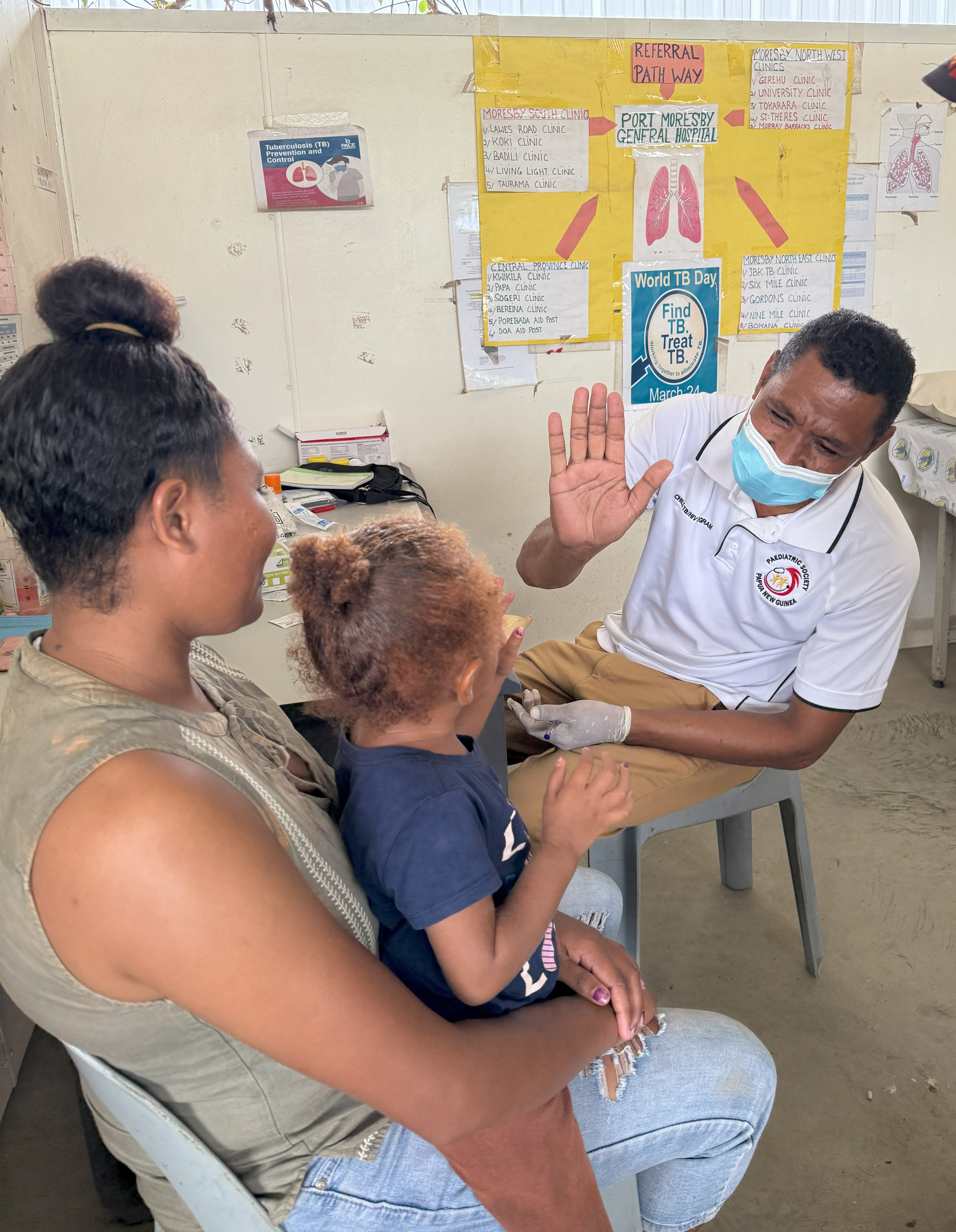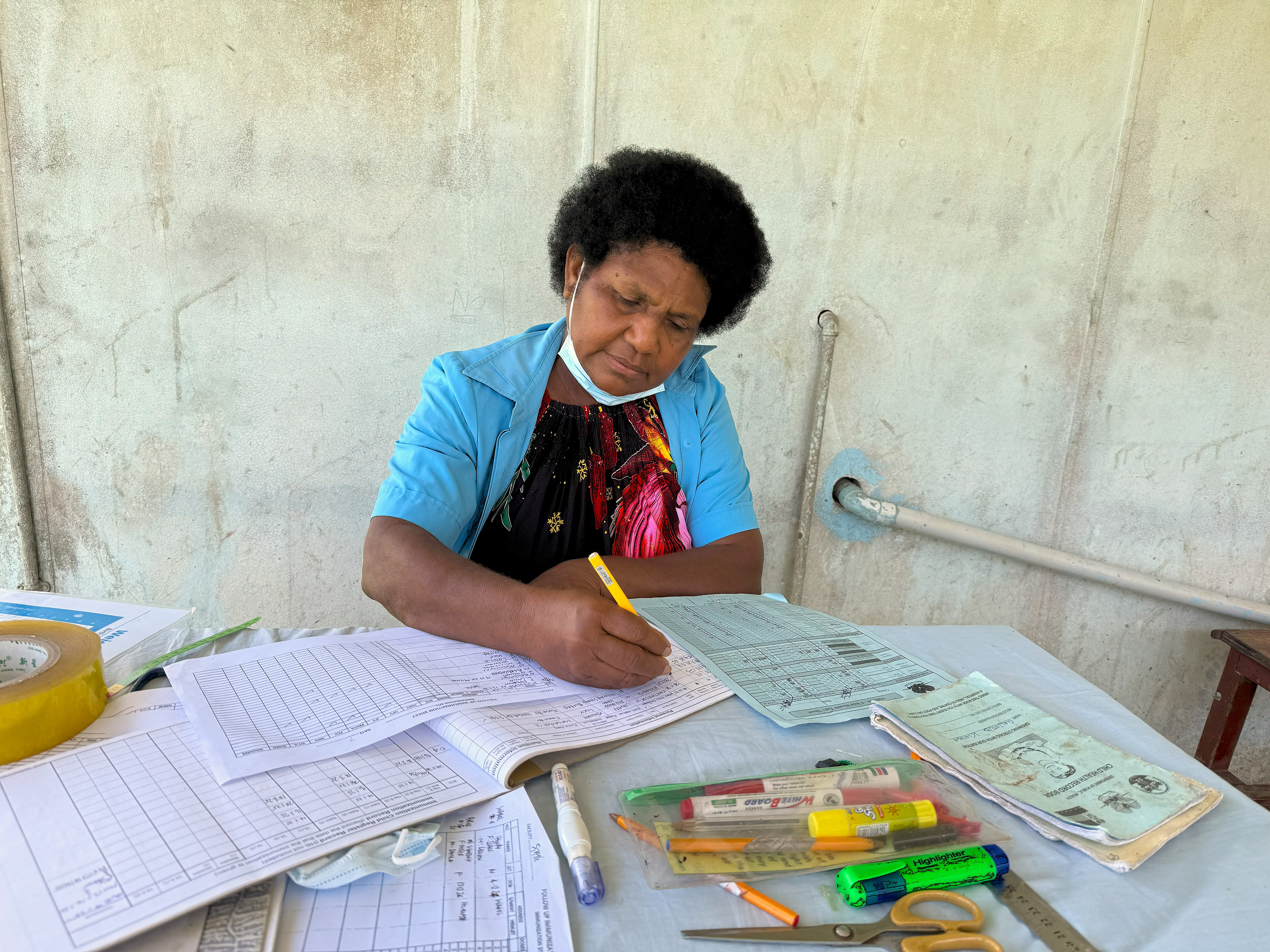Provincial Leadership Means Better Health Services in Papua New Guinea
The challenge: fractured systems, fragile trust


Delivering basic health services has never been simple in Papua New Guinea (PNG).
Vast distances, rugged terrain, and limited infrastructure have long stretched the capacity of provincial systems to reach rural areas or maintain gains beyond a project’s end.
At the root of the problem: operational fragility, fiscal inefficiency, and weak financial controls.
In PNG, health service delivery is devolved to Provincial Health Authorities, which contend with tight, fragmented budgets, inconsistent oversight, and limited internal guardrails. Independent assessments have revealed widespread gaps in procurement discipline, cash management, reporting, and accountability.
Investments in immunization, maternal care, and essential services risk being diluted—or lost altogether. Meanwhile, local populations, particularly in remote areas, continue to face preventable illness, gaps in service, and erosion of public trust.
Targeted public financial management improvements and capacity building


To change course, the Accelerated Immunization and Health Systems Strengthening Program (AIHSS)—supported by Gavi, The Vaccine Alliance and the Australian and New Zealand governments and implemented by Abt Global Australia—focused where it mattered most: financial governance at the provincial level.
Through AIHSS Phase I and II, a deliberate, systems-focused strategy for public financial management (PFM) has been rolled out across 14 Provincial Health Authorities and Bougainville Department of Health.
The core of the strategy is simple: Tighten controls. Build internal capacity. Foster the right policies and positions.
Key interventions include:
- Provide templates and work with Provincial Health Authorities to develop and adopt comprehensive internal control policies, covering procurement, fraud prevention, risk management, whistleblower protection, cash advance handling, and audit standards.
- Encourage recruitment of internal auditors and restructuring of finance offices to ensure separation of duties.
- Accelerate adoption of standardized planning, budgeting, and financial reporting frameworks at district and provincial levels.
- Promote dedicated finance and procurement committees to oversee expenditures and enforce compliance.
Set up independent spot checks, quarterly Corrective Action Plan reviews, and external assessments to validate progress.
Stronger systems, sustainable services, and improved public trust—at scale


Where changes took hold, the results were immediate and strategic.
In provinces like East New Britain and Southern Highlands, strengthened governance unlocked direct donor funding, reduced reliance on intermediaries, and positioned local authorities to steward their own health programs. Specific results for Provincial Health Authorities include:
- In Southern Highlands, PFM compliance scores rose from 60% to 90% between January and September 2024, qualifying the province for independent transition review and direct grant management.
- East New Britain secured direct World Bank funding under the Impact Health Project, following successful Corrective Action Plan implementation and demonstrated governance capacity.
- Eastern Highlands built and operationalized over 15 core financial and operational policies, improved cold chain equipment across 38 major health facilities, and deployed additional clinical staff—improving immunization access even during COVID-19 and the 2022 national elections.
- Western Highlands is now receiving direct funding from other partners like World Vision and donors like Minderoo Foundation to manage program funds and activities, building on its experience receiving and managing direct grants from PATH/DFAT with improved PFM capabilities in place.
- Across provinces, district health plans and costed microplans now guide resource allocation, driving efficiencies and expanding frontline service reach.
Through strengthened internal controls and decentralized capacity, Provincial Health Authorities are now better positioned to deliver reliable, life-saving services—especially in underserved rural and remote communities. Donor trust is increasing, reinforcing a virtuous cycle of accountability and reinvestment.
Why It Matters
Improvements to public financial management have delivered tangible results that advance stability, operational efficiency, and fiscal sovereignty at the provincial level.
In a region marked by competition for influence, resilient provincial institutions anchor Australian investments in long-term results, reduce opportunities for corruption and mismanagement, and strengthen national partners' ability to meet their own citizens' needs without perpetual external intervention.
This work is delivering clear returns:
- Public funds are managed more efficiently and transparently, minimizing waste and maximizing impact.
- Provinces are moving toward self-reliance. Four out of 14 are now directly managing donor investments without intermediaries.
- Health outcomes are improving where systems are stronger — with expanded immunization coverage, better service continuity, and more responsive supply chains.
- Donor trust is increasing, as demonstrated by World Bank and AIHSS direct funding decisions, reinforcing a virtuous cycle of accountability and reinvestment.
- Strategic security interests are protected, as improved governance contributes to regional stability, prosperity and peace.
Where governance is strong, services endure. Where systems are accountable, investments last. Papua New Guinea’s provincial reforms demonstrate how disciplined investment, local leadership, and results-based foreign assistance can align to strengthen nations from within.